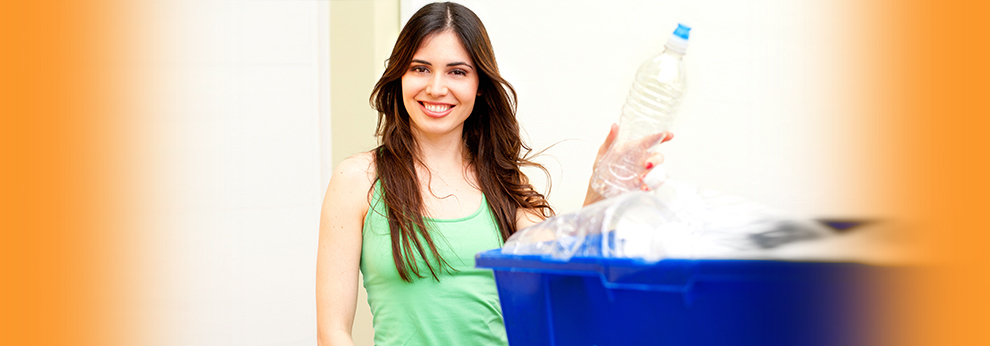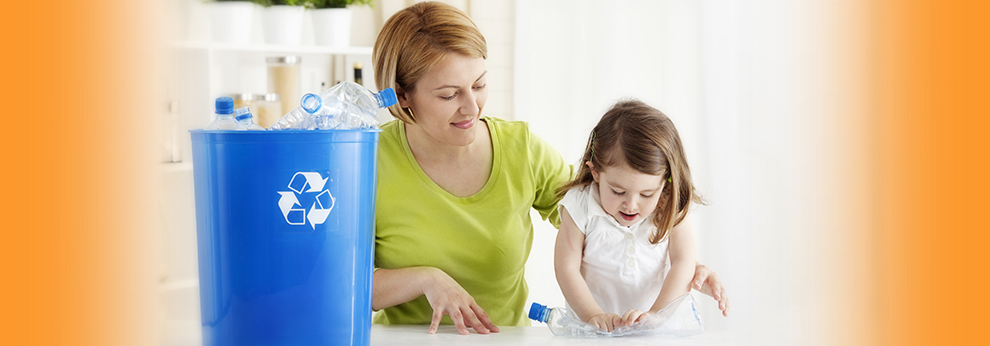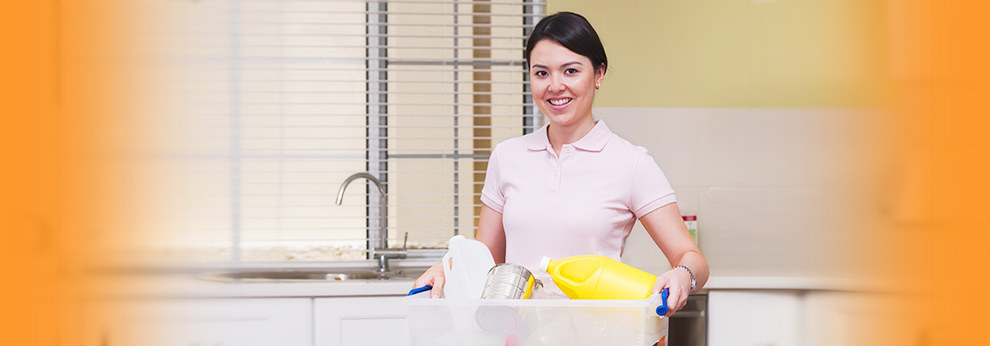Eco-Friendly Choices: Plastics You Should Bypass
Posted on 17/10/2025
Eco-Friendly Choices: Plastics You Should Bypass
In the modern world, plastic pollution has emerged as a critical concern for communities, governments, and environmentally conscious individuals. As we strive for a more sustainable future, it's crucial to make informed decisions and consider which plastics to avoid. Not all plastics were created equal--some are more damaging than others. This article explores which plastics to bypass to benefit both your health and the planet, and introduces actionable eco-friendly alternatives you can embrace today.
Understanding Plastics: Why Some Are Worse Than Others
Plastic is a versatile material, used in countless applications worldwide. Its durability and convenience come at a steep cost, however, as not all plastics break down easily. It's important to recognize that some types of plastics are particularly toxic, non-recyclable, or persistent in our environment for centuries.
- Single-use plastics clog landfills and seas for generations.
- Some polymers leach harmful chemicals into the environment and food chain.
- Not all plastics are easily recyclable, making disposal problematic.
Learning to identify which plastics are most problematic is the first step toward making eco-friendly choices.
The Resin Identification Code: A Beginner's Guide
To distinguish among plastics, most products feature a "resin identification code"--a small number inside a triangle, usually located at the bottom of containers. This code helps recycling centers and consumers identify the type of plastic and its recyclability. There are seven main categories:
- 1 - PET or PETE (Polyethylene Terephthalate)
- 2 - HDPE (High-Density Polyethylene)
- 3 - PVC (Polyvinyl Chloride)
- 4 - LDPE (Low-Density Polyethylene)
- 5 - PP (Polypropylene)
- 6 - PS (Polystyrene)
- 7 - Other (includes polycarbonate, bioplastics, etc.)
Not all plastics with a resin code are safe or eco-friendly. Knowing which plastics to avoid is crucial for anyone seeking to make responsible, environmentally friendly choices.

The Plastics You Should Bypass
Every time you make a purchase, you have the power to influence the environment. Below, we detail the plastics you should bypass for a cleaner planet, healthier oceans, and a safer tomorrow.
#3 PVC (Polyvinyl Chloride) - Hazardous and Non-Recyclable
Polyvinyl chloride (PVC) is found in plumbing pipes, shower curtains, cling wraps, and blister packaging. Its production and disposal release dangerous chlorine-based chemicals and carcinogens like dioxins and phthalates. Moreover, PVC is rarely recyclable, making it a major contributor to plastic pollution.
- Extremely harmful during both manufacturing and incineration.
- Toxic additives can leach into foods and drinks.
- Very difficult to recycle; most recycling centers will not accept PVC.
Eco-friendly tip: Choose products packaged in glass, aluminum, or paper. Seek out PVC-free alternatives for hoses, flooring, toys, and household goods.
#6 PS (Polystyrene) - The Ubiquitous, Undesirable Foam
Polystyrene (including Styrofoam) is commonly used for disposable coffee cups, takeout containers, and produce trays. While lightweight and cheap, PS is non-biodegradable and shatters into microplastics that pollute waterways and harm wildlife.
- Difficult to recycle; many municipalities do not accept it.
- Contains styrene--an EPA-listed possible human carcinogen.
- Persistent environmental pollutant; breaks down into tiny bits easily ingested by marine life.
Eco-friendly tip: Avoid polystyrene takeout items. Opt for reusable, compostable, or recyclable alternatives. Encourage local businesses to phase out Styrofoam products.
#7 Other (Often Polycarbonate) - The Problematic Plastics Bin
Plastics labeled as #7 ("Other") are a catch-all for various polymers, including many that contain Bisphenol A (BPA). BPA is linked to hormone disruption, neurological issues, and even cancer.
- BPA can leach into food and drinks, especially when containers are heated or scratched.
- Covers a wide range of non-standard polymers, making recycling nearly impossible for most facilities.
Eco-friendly tip: Choose products that specifically advertise "BPA-free" and research the type of plastic contained in #7 options. Embrace alternatives such as stainless steel for reusable water bottles and food containers.
Single-Use Plastics - The Ultimate Environmental Offender
Single-use items include plastic straws, cutlery, plates, shopping bags, and packaging films. These products are typically used for mere minutes, yet persist in our environment for lifetimes.
- Contribute significantly to ocean and terrestrial pollution.
- Often escape waste management systems and end up in nature.
- Extremely difficult to recycle due to contamination and material composition.
Eco-friendly tip: Carry your own reusable bags, cutlery, and bottles. Support legislation and local bans on single-use plastics when possible.
Less Harmful Plastics - But Not Entirely Innocent
Some plastics, such as HDPE (#2) and PP (#5), are generally considered safer and more readily recyclable. However, even these materials present environmental challenges and should not be treated as sustainable long-term solutions.
- HDPE is commonly found in milk jugs, detergent bottles, and some plastic bags.
- PP is used in yogurt containers, bottle caps, and straws.
While these plastics have higher recycling rates and contain fewer toxic chemicals, the overarching goal should still be to reduce plastic use altogether and transition to eco-friendly materials whenever possible.
Eco-Friendly Alternatives to Harmful Plastics
The great news is that there are sustainable alternatives to almost any plastic item. Here are some popular substitutes that reduce environmental impact:
Compostable and Bioplastics
- Made from renewable sources such as cornstarch, sugarcane, or bamboo.
- Break down more easily under industrial composting conditions.
Be cautious: Not all "bioplastics" readily decompose in home composts. Always confirm compostability and check local recycling guidelines.
Reusable Materials: Glass, Stainless Steel, and Natural Fibers
- Glass containers are non-toxic, inert, and 100% recyclable.
- Stainless steel is durable and great for food storage and water bottles.
- Cotton, hemp, and jute are excellent for shoppers' bags and food wraps.
Papers and Cardboards
- Choose uncoated and recycled-paper packaging.
- Compostable and biodegradable, reducing landfill waste.
Strategies for Reducing Plastic Usage
Making eco-friendly choices isn't just about avoiding certain plastics--it's about rethinking consumption entirely. Here are actionable strategies to minimize plastic waste:
- Opt for bulk shopping to cut down on individually packaged products.
- Bring your own containers and bags to stores and restaurants.
- Choose products with minimal or zero plastic packaging.
- Advocate for plastic-free options in your community and workplace.
- Participate in local cleanups and recycling initiatives.
- Support brands and businesses committed to sustainability.
DIY Solutions for Everyday Living
- Make your own beeswax wraps as an alternative to plastic cling film.
- Refill household cleaners and toiletries from bulk stores.
- Grow your own produce to reduce dependence on packaged goods.
Why Choosing Eco-Friendly Plastics Substitutes Matters
Every piece of plastic ever produced still exists in some form today--whether in a landfill, floating in the ocean, or as microplastics inside animals and humans. Choosing to bypass the most harmful plastics is not a trend, but a necessity.
Key reasons to make the switch include:
- Protecting marine and terrestrial wildlife from ingestion and entanglement hazards.
- Reducing the release of toxic chemicals during manufacture and disposal.
- Lowering carbon emissions and demand for fossil fuels used in plastic production.
- Ensuring a healthier, cleaner world for future generations.
Common Myths About Eco-Friendly Plastics Choices
There are several misconceptions about biodegradable, compostable, and recyclable plastics. Here are a few:
- All "biodegradable" plastics are safe for the environment. (False! Many require industrial facilities to decompose and may persist in a landfill.)
- Plastic labeled "recyclable" is always recycled. (Unfortunately, most plastic waste is not recycled due to contamination and lack of infrastructure.)
- Compostable plastics can be composted at home easily. (Only some compostable plastics break down outside of industrial composters.)
Always research the environmental impact of alternatives before purchasing.

Toward a Plastic-Free Future: What You Can Do
Reducing plastic use and choosing eco-friendly alternatives is a shared responsibility. Here are more ways you can make a difference:
- Educate friends and family about which plastics to bypass.
- Participate in citizen science initiatives that track microplastic pollution.
- Contact manufacturers and policymakers to voice support for plastic bans and sustainable packaging.
- Encourage local stores and eateries to adopt reusable and compostable packaging.
- Lead by example--share your journey and inspire others to make better choices, too.
Conclusion: Making Smarter Plastic Choices for a Sustainable Tomorrow
The journey toward sustainability begins with the choices we make daily. By understanding which plastics are most harmful and seeking out environmentally-responsible alternatives, you become a part of the solution. Remember, bypassing single-use, non-recyclable, and toxic plastics paves the way for a more balanced relationship with our planet. Choose wisely, act mindfully, and always consider the legacy you leave behind.
Together, our smart decisions can stop plastic pollution at the source and ensure safer, greener environments for generations to come.





